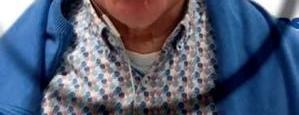
6 minute read
EAS Review

Virtual virtuosos
AE20 couldn’t take place in Cork, but the online event was a success

The European Aquaculture Society’s 2020 Conference, “Creating an Optimal Environment”, postponed due to the Covid-19 pandemic, eventually took place in April 2021. Originally planned for Cork, Ireland, AE20 was held as an online event, the fi rst time the annual conference had taken place in this format.
In another fi rst, AE20 also featured an extra day dedicated to recirculating aquaculture systems (RAS), with sessions on disinfection; monitoring and autonomy in RAS; and challenging interactions between fi sh and the RAS environment.
Herve Migaud of the University of Stirling’s Institute of Aquaculture, who co-chaired the fi rst RAS session and chaired the session in the main conference on innovation in the UK, comments: “There were a lot of topics. It is clear that there is a critical need for more research, and more standardisation, in RAS. We need to fi nd what works and what doesn’t work.”
He notes that RAS technology has been improving, but there is a range of different technologies and we also need to better understand the interaction between fi sh, water, feed, staff and the protocols we are applying.
He also argues that we need to focus on fi sh behaviour and welfare in RAS systems, not just on water quality.
Migaud says: “We especially need more research on the impact of RAS on the fi sh, and on better automation. There is also a need for training, since not many people yet have the skills or experience needed for these systems.”
The RAS day’s fi rst session, on disinfection, was moderated by Professor Jaap van Rijn, Professor in the Faculty of Agriculture at the Hebrew University of Jerusalem and included a presentation from Christopher Good, Director of Research of the Conservation Fund’s Freshwater Institute in the USA.
Session 2, “Where are we going with monitoring and autonomy?” was moderated by Øyvind Fylling-Jensen of Nofi ma, Norway and
included an introductory presentation by Bard Skjelstad of ScaleAQ, Norway. He asked: “Why is more automation NOT happening, or happening faster? Automation is not about reducing staff. Is the market asking the wrong questions?”
Session 3, on challenging interactions, was moderated by Damien Toner of Bord Lascaigh Mhara (BIM) Ireland and included an introductory presentation by Jelena Kolarevic, a senior research scientist at Nofi ma and Professor of RAS Biology at the University of Tromsø.
Toner explained: “The four main actors in RAS are the system itself; the fi sh; the water; and - what’s quite often forgotten, the people that manage these systems.”
She added that RAS is a relatively novel environment for aquaculture. It has well understood benefi ts, but also challenges such as potential exposure to sublethal concentrations of toxic compounds, like ammonia; biologically active water; and artifi cial light. The presentations in all three sessions were followed by panel discussions.
The programme for the main conference, over the next two days, covered a wide range of topics including disease prevention and treatment; IMTA and aquaponics; offshore aquaculture and multiuse of space; recirculating aquaculture systems (RAS); climate change; fi sh welfare; shellfi sh; selective breeding; and the role of genomic research. There was also a session highlighting the role of ARCH in encouraging knowledge exchange and innovation in aquaculture in the UK.











Opposite: HerveMigaud (top); Øyvind FyllingJensen (middle); Damien Toner (Bo� om) This page: Clockwise from top left: Jaap van Rijn; Daniel Scicchitano; Joshua Superio; Madeira; Maoxiao Peng; Bard Skjelstad
The conference also saw the award of the European Aquaculture Society’s prestigious EAS Spotlight Award. This award provided a showcase for three students in the fi eld of aquaculture whose research was selected from a long-list of more than 50 entrants. The shortlisted three presented a summary of their research and fi ndings as part of the online conference, and the winner was selected by a vote of the conference attendees.
The overall winner was Daniel Scicchitano, a PhD student at the University of Bologna, Italy, has won the European Aquaculture Society’s prestigious EAS Spotlight award. His project compared the effects of low and high lipid levels in the diet of gilthead sea bream, in particular looking at how this interacted with seasonal temperature changes. His study concluded that low dietary lipid levels should be preferred during seasonal temperature changes, in order to optimise feed utilisation and fi sh welfare.
The shortlisted runners up were Maoxiao Peng of the University of Algarve, Portugal, and Joshua Lustracion Superio of Nord university, Norway.
Maoxiao Peng’s project examined the impact of climate change and ocean acidifi cation on bivalve shellfi sh growth, fi nding that a change in pH levels in seawater had an adverse effect on the formation of chitin for mussels, but not for oysters.
Joshua Superio’s study examined spawning for European sea bass and found that the hormone GnRHa could improve spawning for broodstock.
Herve Migaud pays tribute to all those who worked hard to make the conference a success: “It was the fi rst all-online for EAS. The intent was not to replace face to face meeting, but the platform worked really well and the chairs did a great job. A lot of people were involved!”
Meanwhile, the organisers of Aquaculture Europe 2021 (AE2021) are confi dent that the event will be able to go ahead as an in-person conference in Madeira this October.
AE2021 is scheduled to take place in Madeira on 4-7 October. While there had been concerns regarding the continuing threat of the Covid-19 pandemic, the regional government of Madeira has announced that events can be permitted, with 50% seating capacity. On this basis, the AE2121 organisers say, there is good reason to believe the conference can take place as planned.
The organisers add: “Having also fi led a formal request to the Madeiran Health Authority, we strongly believe that whatever the fi nal format and capacity, the event can go ahead in Funchal.”
The deadline for submission of abstracts for presentation AE2021 has been extended to 15 May (for abstracts that are posted online but not presented orally, the deadline is 28 August).
AE2021 will be going ahead under the theme “Oceans of Opportunity” and early registration ends on 15 July. Find out more at
aquaeas.org/Meeting/AE2021 FF














